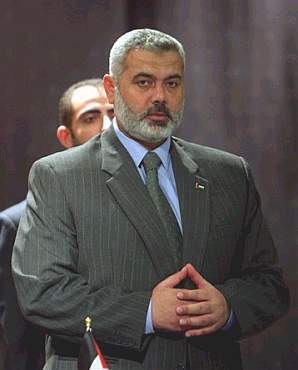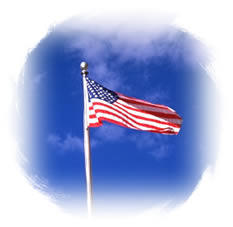2006/11/26
NYTimes Report on the Insurgency
http://www.nytimes.com/2006/11/26/world/middleeast/26insurgency.html
=//Turnquest
2006/11/25
Chaos In Iraq as Leaders Make Visits
 A woman in Beit Hanoun, Palestine weeps as Louise Arbour of the U.N. looks on.
A woman in Beit Hanoun, Palestine weeps as Louise Arbour of the U.N. looks on.Hundreds Killed in Sadr City Bombings...
http://news.bbc.co.uk/2/hi/middle_east/6177356.stm
...While Dozens More Killed in Retaliation Strikes
http://edition.cnn.com/2006/WORLD/meast/11/25/iraq.main/index.html
Hamas Threatens 'New Intifada' If Negotiations Fail
http://english.aljazeera.net/NR/exeres/E487039B-B83A-44FF-B3A7-DA875072501A.htm
Chinese President Hu Visits Pakistan
http://english.aljazeera.net/NR/exeres/27A77A08-FB48-4557-BF2C-76AC2D5887C6.htm
U.S. Vice-President Cheney Visits Saudi Arabia
http://edition.cnn.com/2006/WORLD/meast/11/25/cheney.saudi/index.html
'New Tokyo Tower' Set to Become World's Tallest Structure
http://www.cbc.ca/world/story/2006/11/25/tokyo-tower.html
=//Turnquest
2006/11/13
Afghanistan and Canada

Keep the war to a minimum
editorial
An I.E.D, better known as the roadside bomb, exploded on Friday October 27 killing 14 civilians. Meanwhile, mass prayers were held in the south of the country for more civilians killed in another bombing by coalition forces. A political debate at home rages about whether or not to bring troops home. And all the while, an insurgency comprising of radicals gains momentum in its efforts to dislodge what it sees as foreign occupiers.
Is this Iraq? No; this is Afghanistan.
For the first time in generations, Canadians have had to deal with the reality of casualties coming in from war. Questions, naturally, have arisen about our country’s role in Afghanistan, what our mission objectives ought to be and whether we are prepared to shoulder the mounting toll of casualties. Yet before these questions can be answered, it is necessary to deal with the issue of why we are there in the first place.
We can trace back the roots of the conflict to that fateful day in September of 2001. Twenty-four Canadians, along with thousands others were killed when terrorists who had been aided by the former regime of Afghanistan launched their attacks on New York and Washington. The immediate reason for our presence in Afghanistan is to prevent another terrorist-friendly regime from taking over and creating conditions that would be conducive to a second major attack. The second underlying reason for Canadian troops to be in Afghanistan is to be part of the greater War Against Terror and to take the fight to the enemy. This reason assumes that as long as battles against terrorists take place in far-off places such as Afghanistan and Iraq, they won’t have to be fought on Canadian or American soil. However, such thinking doesn’t take into account the idea that at some point, our troops will have to come home. Fighting a perpetual war overseas comes dangerously close to the idea of a “clash of civilizations.” One must ask oneself, are we fighting terrorists or are we fighting a culture?
Many Muslims, including moderates, have begun to look at the wars being fought in Iraq and Afghanistan as part of a war against Islam. That opinion was only furthered this past summer with the Israel-Lebanon conflict. Muslims share a common bond amongst each other, regardless of nationality or race. Over the past few years, they have watched their fellow Muslims suffer gravely as a result of war and conflict. At best, they feel anguish at the pains inflicted on the victims. At worst, they feel that it is their duty to take action to avenge their fellow Muslims. Arguments have been made that the more Taliban and insurgents are killed, the more radicals rise up to take their place.
But for the most part, Muslims as a whole are on the same side as Canadians in this conflict. What some extremists on both sides declare to be a war of cultures is simply not true, and credence given to such opinions is damaging. Our similarities on the issues, including disgust for terrorist tactics, desire for economic progress and need for collective security, not to mention belief in the same God, are vital for establishing a lasting peace.
The real war that must be fought is not the military one, but the one for the hearts and minds of the civilians of Afghanistan. Despite news stories of our troops suffering casualties, it is the Afghanis who are making the greatest sacrifices. Their land is being turned into a battleground and their families are enduring losses all for the sake of a better future. Healing the wounds of war and ensuring that future generations of Afghanis don’t hold a grudge against us is key to victory. Their success is our success.
The fighting in Afghanistan must be kept, for both sides’ sake, to the absolute minimum of what is necessary to get the job done. There have got to be definite goals set and an exit strategy of how to get out when those goals are met. Prolonging the fighting will only result in excess casualties for Canadian troops and civilians and miring our forces in an endless conflict. Afghanis would see a prolonged presence in their country as further evidence that our troops are occupying, rather than peacekeeping.
The Canadian forces servicemen and women serving in Afghanistan are generally young and college age. It is our peers, our generation that is fighting over there. We must recall the sacrifices they make on our behalf and the valour of their service. One thing that both Afghanis and Canadians can agree upon is the beauty of the peace that will come at the end of this long road.
=//Turnquest
Dems Take Back the U.S. Government

Democrats Take Congress; Election Round-Up http://www.cnn.com/ELECTION/2006/
Minnesota Elects the First Muslim For Congress http://us.cnn.com/2006/POLITICS/11/08/muslim.elect/index.html
Palestinians Select New Prime Minister for Unity Govt... http://english.aljazeera.net/NR/exeres/C9901541-6BD9-4DDB-B419-4BFA6F3789A5.htm
As Violence Explodes Across Gaza http://economist.com/daily/news/displaystory.cfm?story_id=8157240
U.S. Officer in Iraq Tells of Disorganized Iraqi Army http://www.cnn.com/2006/WORLD/meast/11/02/training.iraqis/
Scores Killed in Pakistani Army Attack on Madrassa http://www.dawn.com/2006/10/31/top1.htm
Hundred-Plus Killed in Iraq http://english.aljazeera.net/NR/exeres/B98DD62A-CC80-46EC-982F-31BE9853E723.htm
PS3 Released on Friday
http://www.gamespot.com/events/ps3launch/index.html
=//Turnquest
2006/11/06
Eve of the Elections

Enough's been said on the subject of tomorrow's U.S. midterm elections without myself going on about the latest polls or what the definition of a botched joke is. If you're looking for further coverage on the last-minute pushes by both parties, check abcnews.com/politics or Google News.
In essence, the vote will not make much difference on the war. W's administration is fairly impervious to political pressure and has made it known that there will be no troop withdrawal from Iraq until after his presidency is up. And after all, it's his call. What the vote will have an effect on is the legacy of Mr. Karl Rove and his reputation as invincible mastermind of political scheming, and whether or not the Democrats are a totally lost cause. I mean, if they can't win in this climate, they don't deserve to be a party anymore.
On a final note, if you're a legal American citizen, go vote. It's shameful to not do so while hundreds of thousands of soliders are fighting in your name for supposed freedom.
=//Turnquest
2006/11/01
Hamas Op-Ed in the NY Times
http://www.nytimes.com/2006/11/01/opinion/01yousef.html?_r=1&oref=slogin
Pause for Peace
By AHMED YOUSEFHERE in Gaza, few dream of peace. For now, most dare only to dream of a lack of war. It is for this reason that Hamas proposes a long-term truce during which the Israeli and Palestinian peoples can try to negotiate a lasting peace.
A truce is referred to in Arabic as a “hudna.” Typically covering 10 years, a hudna is recognized in Islamic jurisprudence as a legitimate and binding contract. A hudna extends beyond the Western concept of a cease-fire and obliges the parties to use the period to seek a permanent, nonviolent resolution to their differences. The Koran finds great merit in such efforts at promoting understanding among different people. Whereas war dehumanizes the enemy and makes it easier to kill, a hudna affords the opportunity to humanize one’s opponents and understand their position with the goal of resolving the intertribal or international dispute.
Such a concept — a period of nonwar but only partial resolution of a conflict — is foreign to the West and has been greeted with much suspicion. Many Westerners I speak to wonder how one can stop the violence without ending the conflict.
I would argue, however, that this concept is not as foreign as it might seem. After all, the Irish Republican Army agreed to halt its military struggle to free Northern Ireland from British rule without recognizing British sovereignty. Irish Republicans continue to aspire to a united Ireland free of British rule, but rely upon peaceful methods. Had the I.R.A. been forced to renounce its vision of reuniting Ireland before negotiations could occur, peace would never have prevailed. Why should more be demanded of the Palestinians, particularly when the spirit of our people will never permit it?
When Hamas gives its word to an international agreement, it does so in the name of God and will therefore keep its word. Hamas has honored its previous cease-fires, as Israelis grudgingly note with the oft-heard words, “At least with Hamas they mean what they say.”
This offer of hudna is no ruse, as some assert, to strengthen our military machine, to buy time to organize better or to consolidate our hold on the Palestinian Authority. Indeed, faith-based political movements in Algeria, Egypt, Iraq, Jordan, Kuwait, Malaysia, Morocco, Turkey and Yemen have used hudna-like strategies to avoid expanding conflict. Hamas will conduct itself just as wisely and honorably.
We Palestinians are prepared to enter into a hudna to bring about an immediate end to the occupation and to initiate a period of peaceful coexistence during which both sides would refrain from any form of military aggression or provocation. During this period of calm and negotiation we can address the important issues like the right of return and the release of prisoners. If the negotiations fail to achieve a durable settlement, the next generation of Palestinians and Israelis will have to decide whether or not to renew the hudna and the search for a negotiated peace.
There can be no comprehensive solution of the conflict today, this week, this month, or even this year. A conflict that has festered for so long may, however, be resolved through a decade of peaceful coexistence and negotiations. This is the only sensible alternative to the current situation. A hudna will lead to an end to the occupation and create the space and the calm necessary to resolve all outstanding issues.
Few in Gaza dream. For most of the past six months it’s been difficult to even sleep. Yet hope is not dead. And when we dare to hope, this is what we see: a 10-year hudna during which, inshallah (God willing), we will learn again to dream of peace.
Ahmed Yousef is a senior adviser to the Palestinian prime minister, Ismail Haniya.
=//Turnquest
p.s. didn't Osama offer something along the same lines? Are terrorists so inhuman they cannot offer peace or what?
